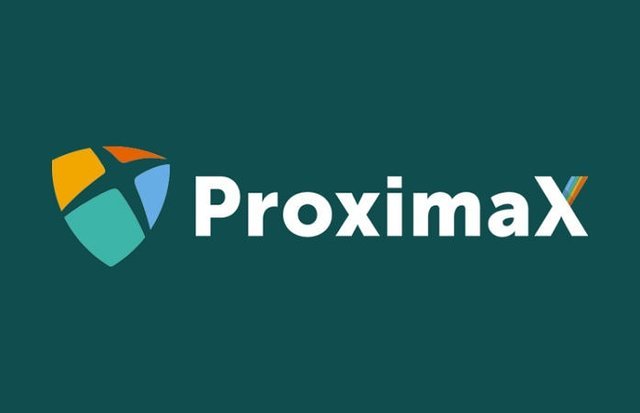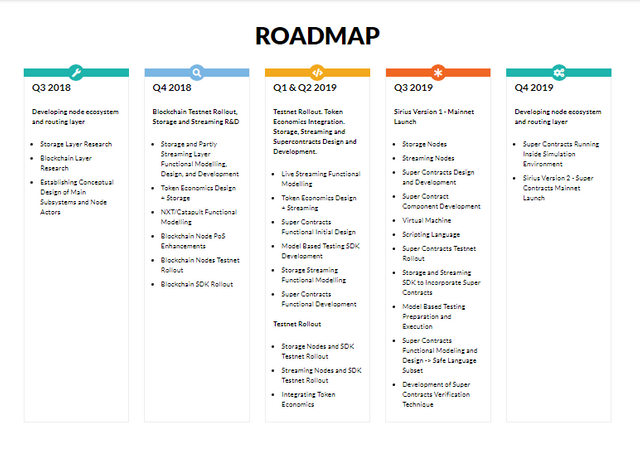What is ProximaX?
Proximax is a next-generation blockchain protocol that is geared towards providing a flexible, secure, fast and cost-efficient infrastructure development platform. It is an integrated and Distributed Ledger technology (IaDLT) with built-in plugins such as streaming, storage, and supercontracts which can enable developers to build a wide range of applications. The blockchain protocol is the cement that holds it all up, providing the necessary features for identification, incentivization, message recording, state management, and asset exchange. The blockchain protocol is set up in a standardized manner to have it plugin receptive. This makes Proximax poised to indeed achieve the developer's dream of a do-all tool.ProximaX Sirus stage arrangement actually gives all arrangements of advancement apparatuses and administration bundles for engineers that is exceptionally effective and simpler to deal with. With these thoughts, ProximaX wants to make an all inclusive appropriate and effective framework for structure applications dependent on combination with blockchain, enabling them to encounter one of a kind decentralization profits by inheritance.The creative arrangements of this ProximaX Sirius stage give the benefits of a blockchain-based system and conventional concentrated database and capacity arrangements. Exploit the innate qualities of blockchain while comprehending the puzzler in blockchain record exchanges, which gives adaptability, simplicity of appropriation and combination, security, speed, gainfulness, all in a solitary open system.

Proof of stake
Recent modification in the NXT’s PoS consensus algorithm has lead to two significant breakthroughs First, parameters are discovered that give better control over the duration required to sign (validate) a block. A typical NXT's pos takes at least 60 secs to generate a block,the current modifications presents a 15secs window to generate a new block. And secondly, its further expansion has solved the problem of long blocks by providing a more specified block time. these modifications prevents the risk of a zero fees attack
Proximax wisely incorporated proof of stake as Sirius chain consensus mechanism which considers wealth and age as part of the node reputation system that dictates the chances of a node validating transactions in the network. pow has much benefits when compared to its counterpart proof of work which is relatively
less economically efficient and tedious to scale as the Proximax network continues to grow over the years. pow adds a considerable amount of security while validating a block due to its validators all have a staked amount in the block.
Proof of Greed Extension
Consumers who wish to make a transaction on Sirius chain will have to first,confirm the maximum amount of fees they are willing to pay. Unconfirmed transactions in the chain form a transactions pool, from which Validators take transactions, create their own blocks, and request a fee that is not more than the maximum amount specified by a consumer. while making selection PoG’s algorithm takes into account not only the stake and age of a Validator, but also the size of the specified fee. The lesser the specified fee, the higher the possibility that its block will be recorded on Sirius Chain. Proof of greed also ends a current challenge faced by both consumers and validators that is a constant fee no matter the transaction type or volume.
Main Features
-Account
-Namespace
-Multiple mark of numerous levels
-Transactions between chains
-Transactions included
-Mosaics
-Metadata
ProximaX Token
-pay for platform services;
-intoduce little charges to nodes for running a designated service; and
-represent the capacity of a node that provided the service.
Generally for every project on the blockchain, there is always a digital currency for exchange on the platform, for the Sirius chain the native currency is XPX. This means that every customer willing to make use of the services offered by the platform will have to pay in XPX. Furthermore, the token (XPX) is used to subscribe to the ProximaX Sirius public network which enables them get access to full service units
Utilizing the platform's services requires you to pay in the native token, XPX since the platform's services are tied to the blockchain protocol. XPX is exchanged through an Automated Inner Exchange to Service units. These service units can be compared to gas in the ethereum blockchain. There are four (4) types of service units and they are used to pay for the platform's services, incentivize service running nodes and to determine the service providing capacities of nodes.
Proximax's like ethereum network enables consumers to tokenize assets. It does this with its custom Tokens (Mosaics) feature. They are in-built contracts pre-defined on the blockchain protocol to allow them create digital representations of a real-life asset.
The ProximaX Wallet
With traditional digital contracts, the only way to offboard an application is to update an external dependency, rather than closing the application via its backend. This is quite a bulky and time-consuming process.
With supercontracts, it is much simpler. As the code belonging to a supercontract resides in Sirius storage, to offboard an application, a developer simply needs to close their Sirius storage drive, which makes a supercontract’s code unavailable to end-users.
RoadMap

Team

More about Proximax
https://www.proximax.io/ https://bit.ly/2koqP5l https://medium.com/@proximaxio https://t.me/ProximaXio https://twitter.com/ProximaXio https://www.linkedin.com/company/proximaxio https://www.instagram.com/proximaxio/